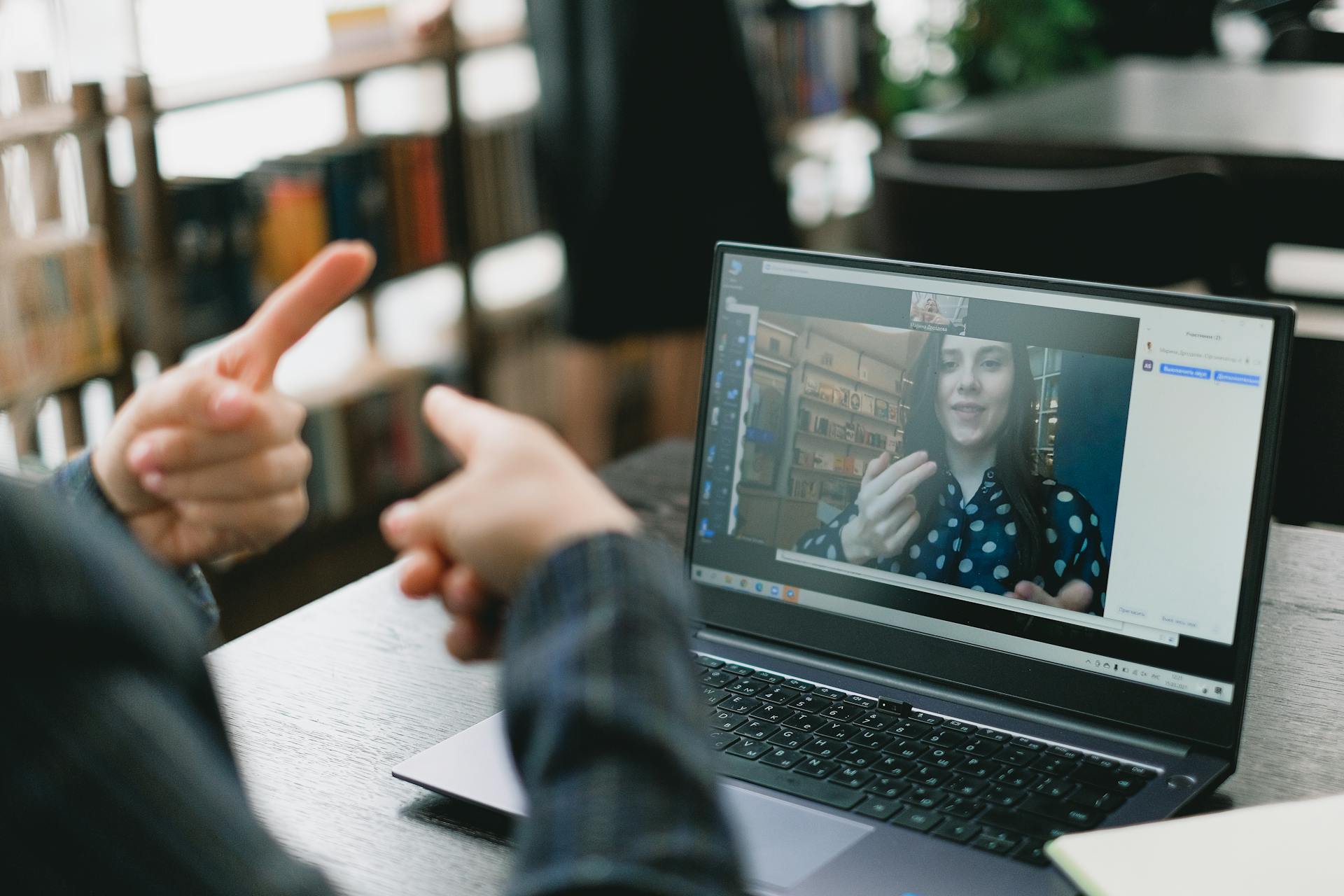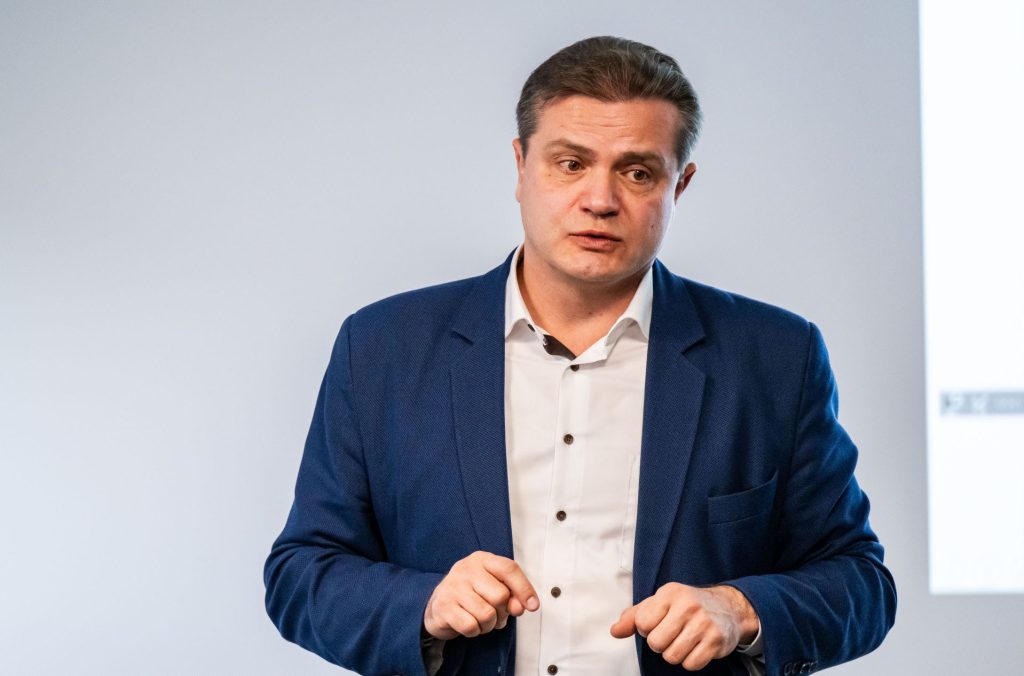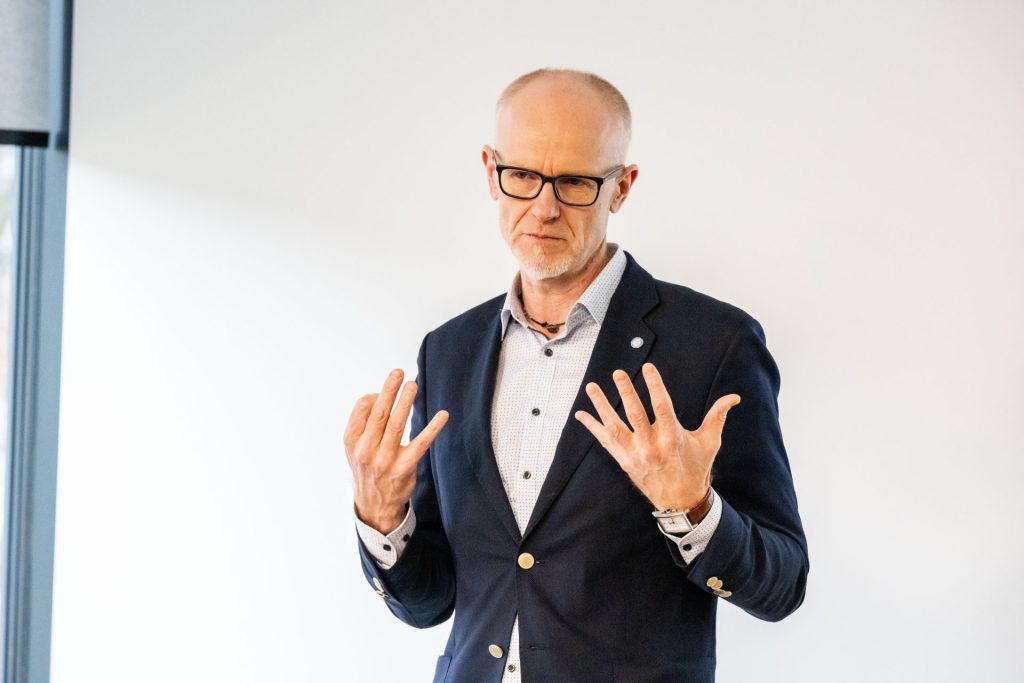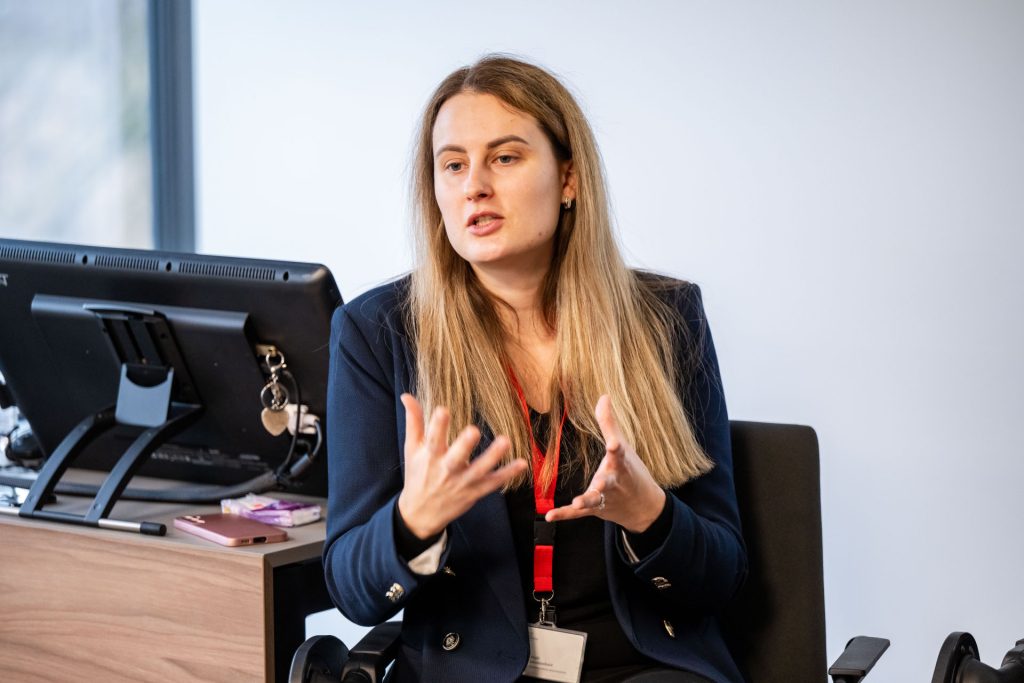Project Focuses on Students with Visual or Hearing Impairments

“In the fields of technology and natural sciences, we less often see students with visual or hearing impairments. That’s why, in cooperation with organisations from six countries, we aimed to provide them with better opportunities for integration and to create educational materials that would help these students engage effectively in the learning process,” explains Prof. Saulius Mickevičius, Dean of the Faculty of Natural Sciences at Vytautas Magnus University (VMU) and leader of the international “Diffability” project.
The “Diffability” project is one of the first to develop educational materials adapted for students with hearing and visual impairments in the fields of natural science and technology. It included the creation of a guide to technology-based business that enables students to acquire the foundational knowledge necessary for starting their own businesses. This project was a cooperative effort involving VMU and institutions from Germany, Belgium, Slovenia, Portugal, and Turkey.
Aimed to understand the needs of students with disabilities
“This is the first project of its kind, and the results have indeed turned out quite well. However, we must not stop here but continue to involve more and more students with disabilities in the studies of natural sciences,” says the project leader.
According to him, the project aimed to focus more attention on students with disabilities so that they could gain basic knowledge about technology-based business. It also included a review of different European countries, assessing the integration possibilities for students with disabilities: adaptation of study programmes, incentive programmes, and accessible courses. The project gave priority to students with visual or hearing impairments, as they often lack adequate study adaptations in some fields.
“One of the bigger challenges was understanding the needs of such students. For example, teachers in natural sciences or technology are used to using a lot of visual aids such as graphs and tables. However, screen readers and text-to-speech tools do not always accurately interpret information presented in this way and often struggle to process it. We have therefore tried to present as much information as possible in text form and to describe all tables and other illustrations in detail,” says Prof. Mickevičius.

Head of the project Diffability, Dean of VMU Faculty of Natural Sciences, Prof. Dr. Saulius Mickevičius
A large part of the work involves educating teachers
According to Prof. Mickevičius, it is not enough to merely prepare materials or general guidelines and expect everything to proceed as it should. A large part of the work also involves educating the teachers themselves, reminding them how to present materials so that all students can use them.
“A lot of work also went into addressing our own inner attitudes. It seemed that working with students with hearing impairments would be easier than with those with visual impairments because the former can still see the text and understand visual materials. However, we had to recognise that the latter also perceive and assimilate information differently, which had to be taken into account. Considerable effort was made to identify the individual needs of students with disabilities, to understand them, and to adapt the materials,” explains the leader of the “Diffability” project.
The professor notes that the project produced not only a guide to technology-based business but also video presentations in sign language for students with disabilities. As the project involved institutions from different European countries using different sign languages, it was decided to use International Sign Language to avoid translation issues.
The project’s reviews, teaching materials, and videos are freely available not only to participants, students, and teachers of this programme but also to other international partners. It is hoped that the materials will be translated into the national languages of various European countries and effectively adapted and further improved.
“We are pleased that this project was presented back in November 2023 at the Disability Forum held at VMU, where we had a discussion about the opportunities open for students with disabilities in the field of natural sciences. The Disability Forum, which was held again last May, presented the number of students with disabilities studying in different faculties and revealed that natural sciences are less popular due to their specificity. Both my role as Dean and that of my faculty colleagues is to increase this number,” says Prof. Saulius Mickevičius, Dean of the VMU Faculty of Natural Sciences.
VMU – A University of Inclusive Opportunities
VMU, representing Lithuania in the project, is one of the first higher education institutions in the country to adapt study conditions for individuals with disabilities, and today, it is a socially responsible university implementing the disability policy “University of Inclusive Opportunities.” This policy aims to ensure a culture of equality and non-discrimination at the university, to provide reasonable accommodations for study and work conditions, and to increase the accessibility of studies. VMU also adheres to a human rights-based model of disability, which is reflected in the United Nations Convention on the Rights of Persons with Disabilities.

VMU professor, former Vice-Chair of the UN Committee on the Rights of Persons with Disabilities Dr. Jonas Ruškus
“Adapting studies is vitally important for people with disabilities! It opens up opportunities for them to participate in societal life on an equal footing with all people and to contribute to the well-being of society. Furthermore, adapting studies for people with disabilities changes the organisational environment of the university, creating a culture of diversity and creativity and opening up new spaces for communication, methods, learning, and discovery. The inclusion of people with disabilities brings comprehensive added value to individuals, the organisation, and society,” notes Prof. Jonas Ruškus, a VMU professor and former Vice-Chair of the UN Committee on the Rights of Persons with Disabilities.
According to the VMU Disability Coordinator Miglė Janušauskaitė, implementing disability policy is a continuous process – there will never be a time when nothing needs to be done or changed, as the needs of each person with disabilities are individual. In any case, the project results have inspired university representatives to analyse more broadly why students with disabilities choose certain study fields over others, and to remove barriers that hinder them, ensuring the accessibility of studies.

VMU Disability Coordinator Miglė Janušauskaitė
“We are one of the first higher education institutions in Lithuania to have established the position of a Disability Coordinator and adopted a disability policy document. This project implemented by the VMU Faculty of Natural Sciences once again shows that the effort to reasonably adapt study and work conditions and to increase the accessibility of studies for people with disabilities is a merit of the members of the VMU community,” says Miglė Janušauskaitė.
The international project “Diffability: HE Curricula & Transition Programme Empowering Students with Different Abilities” was carried out from 2022 to 2023. Project partners include NGO Out of the Box Europe (Portugal), Vytautas Magnus University (Lithuania), the University of Ljubljana (Slovenia), the German-Italian Chamber of Commerce, the Belgian-Italian Chamber of Commerce, the Turkey Youth Union Association, and the Association of Visually Impaired in Education (EGED) (Turkey).












